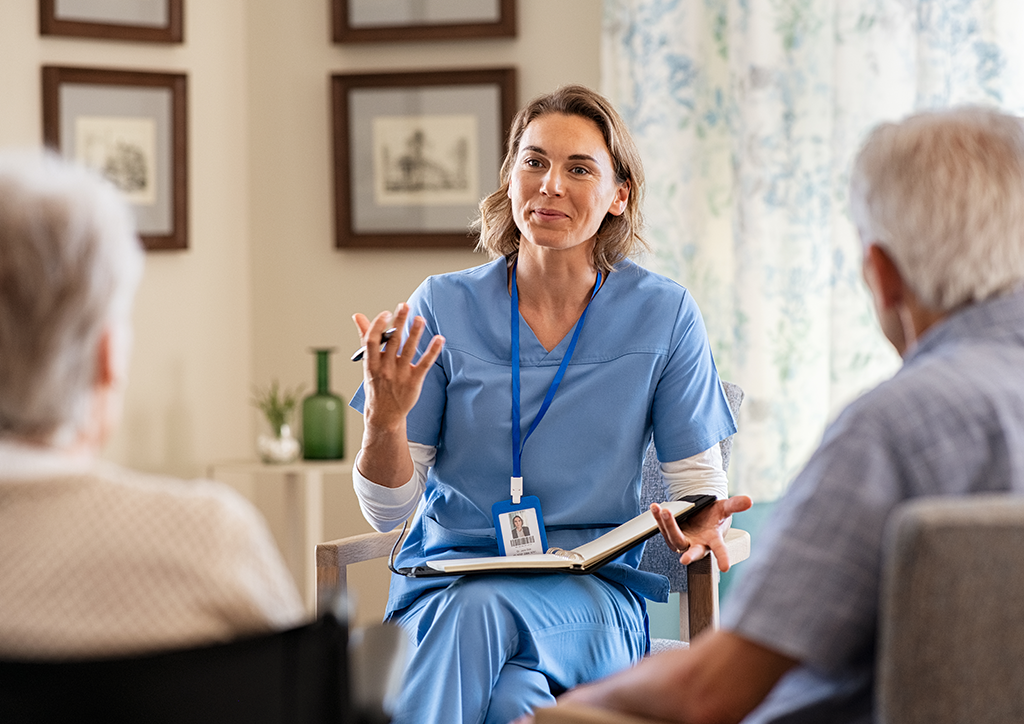
My last post on the future of clinical research ended with a preview of our thoughts on elevating clinical trials as part of overall consumer care, and I wanted to expand on that topic by highlighting an important distinction between some existing decentralized clinical trial solutions and what Hawthorne Effect believes is the path to convergence. A truly integrated, patient-centric delivery model that includes research as a foundational component will require more than new technologies.
Technology is an enabler, but the solution is one that combines tech with people to normalize research as a standard part of their healthcare delivery. Clinical trials will become a routine part of the patient experience only when participation is as convenient as most other consumer choices, and that requires eliminating barriers to patient access by taking the trials to them.
 This is going to be a big topic at the SCOPE Venture, Innovation, & Partnering Conference in Orlando, scheduled for February 7, 2023, of which I’m a co-chair. One of the panels I’m on is focused on the convergence of tech-enablement and investment, and here are a few thoughts you might hear me expand on during that gathering.
This is going to be a big topic at the SCOPE Venture, Innovation, & Partnering Conference in Orlando, scheduled for February 7, 2023, of which I’m a co-chair. One of the panels I’m on is focused on the convergence of tech-enablement and investment, and here are a few thoughts you might hear me expand on during that gathering.
Consumer control over clinical trials begins with patient enrollment
With Kroger as the latest to enter the field, this is a point already recognized by large retail chains, with companies such as CVS, Walgreens, and Walmart already moving into the clinical research space. The combined physical footprint of these businesses is in the tens of thousands, and moreover, they often reach into underserved communities that are virtual healthcare deserts. The impact for patient recruitment and enrollment cannot be overstated, and Hawthorne Effect knows from experience.
We have been proud participants in the PREVUE VALVE study, which aims to better understand the prevalence of valvular heart disease (VHD) and improve access to novel therapies. The biggest shortcomings in previous studies – namely, convenience samples (patients who were already referred) or non-representative populations – meant the true frequency of VHD is not well understood, so the retail presence of CVS Health was leveraged to recruit from more-diverse areas. Millions of Americans choose to shop at these stores, and they might otherwise never have known about this trial.
Ensuring data integrity demands professional oversight
I’ve long said that apps and wearables cannot replace medical professionals for many of the assessments required in studies, for several reasons. For one, some assessments simply can’t be performed without specialized equipment or training; and we certainly don’t want patients attempting their own blood draws.
Moreover, many clinical trial protocols are complex, and strict adherence to specific standards for data collection is fundamental to ensure compliance and ultimately garner regulatory approval for new therapies. Equipping and sending medical professionals to perform these assessments not only solves for technology and experience gaps, it also ensures the highest level of oversight for both data quality and patient safety while optimizing for the patient convenience.
Enabling more medical professionals to participate in research prioritizes patient choice
A patient that has to drive several hours to an academic medical center every month for a year-long clinical trial might not make every visit; or, they simply might not enroll. Give that patient the option of participating in a pharmacy, office, or store around the corner, and you’re almost certain to see better participation and follow-up. Send clinicians directly to the patient’s home or work for assessments, and that’s a level of consumer empowerment that technology alone cannot match.
Technology alone cannot match the level of consumer empowerment afforded by retail partnerships and a distributed network of healthcare professionals making trials available everywhere, to anyone. If the reasons above didn’t convince you, also consider:
- Removing ambivalence in physicians to participate in and refer patients to trials because of burden or perceived outcomes.
- Improving professional development for multiple types of healthcare professionals.
- Developing treatment and research plans with fully integrated medical teams.
- Accelerating research and bringing new therapies to market faster, and more.
Join me at SCOPE as we discuss these points and what the future holds for clinical research.

Jodi Akin, Founder + CEO
Jodi is a healthcare executive, leader, innovator, advisor, and serial entrepreneur. She has more than 20 years of experience in clinical development, scientific and regulatory strategy, management, and medtech market development from start-ups to S&P 500 companies. Prior to founding Hawthorne Effect, Jodi was Global VP Clinical Affairs at Edwards Lifesciences, where she led the seminal clinical trials and regulatory approvals for transcatheter heart valve therapy.
She holds an undergraduate degree in Foreign Service from Georgetown University, and a Masters in Physiology and Nursing from Pace University. She also holds eight patents.